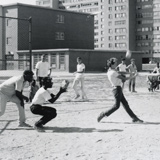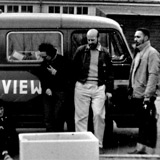
What Kind of a War Is This?
The war against ISIS, as it is currently being waged, cannot be called a just one.


The war against ISIS, as it is currently being waged, cannot be called a just one.

Economic insecurity produces insatiable demands on nature. This is the point where environmentalist and egalitarian projects meet.

This Black Friday, Walmart workers and their allies have undertaken a “Fast for $15.” Belabored spoke with Dan Schlademan, co-director of OUR Walmart, and Tyfani Faulkner, who was in the middle of her fifteen days without food.

We need to resist the belief that the only way to end mass incarceration is to tackle the root causes of crime.
With a counter-argument by Michael Javen Fortner.

Real criminal justice reform demands profound social change. The fixation on severe sentences and police brutality masks harder truths.
With a counter-argument by Marie Gottschalk.

In a special symposium, Karen Narefsky and Aaron Tanaka offer two visions for socializing the spaces where we live and work.

In the face of the racism and disinvestment that have hobbled U.S. public housing, the left should not retreat from the concept but reclaim it.

Community land trusts provide a model for a non-capitalist approach to stewarding land—transforming the ways we think not only about property, but about earth and ecology itself.

An interview with journalist Atossa Araxia Abrahamian about her new book, The Cosmopolites, and the buying and selling of citizenship.

We must tally not only the advantages but also the costs of the LGBT rights movement’s strategic turn to marriage equality.

If we give in to the politics of fear, we will only harm ourselves and others.

A selection of key essays on democratic socialism from the Dissent archives.

An interview with historian Erik Loomis about his new book, Out of Sight, on the labor and environmental catastrophes caused by our outsourcing of dirty jobs. Plus: the Mizzou football players, updates in the Fight for $15, and FedEx workers on strike.

By remaining outside the mainstream, little magazines can articulate those demands and alternatives that are just left of the possible. Our hope is that these ideas will trickle up.

We should not to take refuge in the comforting fallacy that Obama’s failings have been nothing more than the result of bad spin.